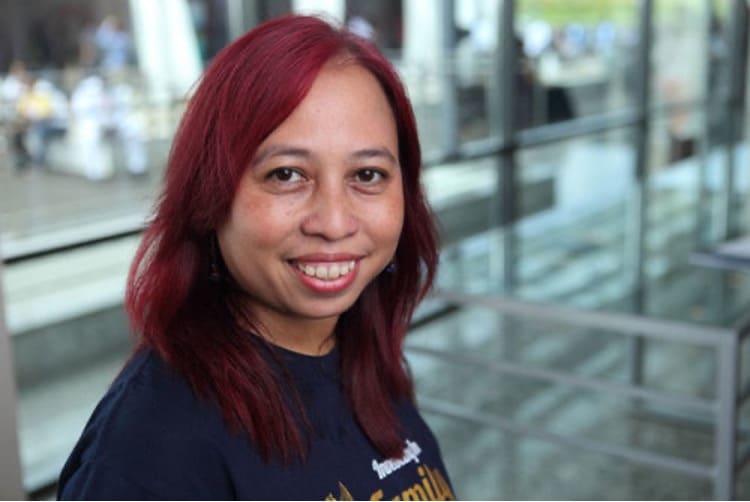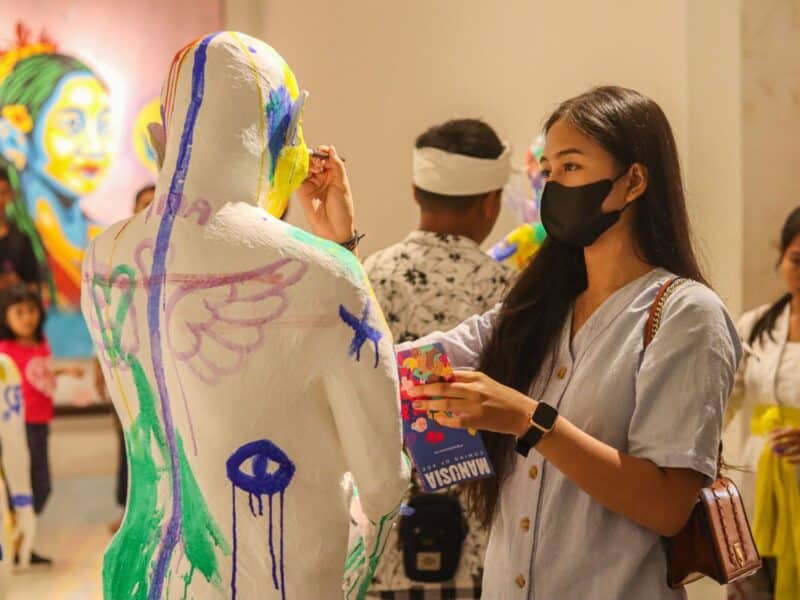Yunita Wahyuningrum, a longtime member of the Johns Hopkins Center for Communication Programs staff in Indonesia and executive director of a new CCP sister organization, died Thursday of cancer after a yearlong battle. She was 49.
Wahyuningrum’s fun-loving and caring behavior touched all who knew and worked with her. She was hard at work as recently as the 2022 International Social and Behavior Change Summit in Morocco in mid-December, making presentations, staffing a booth and greeting old and new colleagues and friends.
She had been with CCP since the late 1990s, working her way up to become project director for the MyChoice family planning project in Indonesia. In 2021, she was named executive director of the Jalin Foundation, a CCP sister organization in Indonesia.
“She was a friend to all who she worked with and was dedicated to improving the quality of life for Indonesians whether that was through improved sanitation, improved access and method mix to contraceptives or the prevention of avian flu,” said CCP’s Robert Ainslie, the Indonesia team leader who worked with Wahyuningrum for many years. “She was a tireless fighter and always saw the good in people. She leaves a collective hole in our hearts and will be missed dearly.”
Wahyuningrum had a long history with CCP starting with work as a researcher on the World Bank Coral Reef Rehabilitation & Management Project (COREMAP), one of CCP’s first and largest environmental communication projects. She worked on a variety of other projects over the years and was the project director of CCP’s Improving Contraceptive Method Mix project in Indonesia.
CCP’s Maria-Elena Figueroa recalled working with Wahyuningrum from 2006 to 2009 on hygiene projects including one to prevent avian flu in Indonesia. Together, they visited poultry producers, slaughterhouses, markets and communities and worked long hours to create questionnaires to use in their research.
“She was always very detail-oriented and so much fun to work with,” Figueroa said. “Her attention to detail was evident in her dedication to ensuring every question we asked was adequate to fit the cultural context. Her positive attitude in the face of project challenges kept everyone working with her in high spirits. It was hard not to feel happy being around her. She was so energetic, so enthusiastic and so dedicated to her work.”
When it came time to develop CCP’s center-wide PULSE monitoring program in 2017, Figueroa said, the team turned to Wahyuningrum to be sure her innovative monitoring experiences and lessons learned were captured. “Yunita was a pioneer on program monitoring, developing various approaches to understand how to improve programs in the field,” she said.
In 2019, Wahyuningrum was interviewed for the FP Voices project, which gathered insights into family planning from practitioners around the world. She spoke of how even small projects can have a big impact.
She recalled a time when USAID was evaluating all its Indonesian projects. “The evaluator came to me, and she said, ‘Yunita, the ICMM Project is really good. We evaluated it and we really are proud with the design, with the achievements, and also with the PMP—performance monitoring plan—that the team developed. It’s really simple, clear, and understandable. So for the scaling up, it will be easier to adapt this project.’ So, for me, as project director, it made me proud. All of our team members really worked hard.”
“Yunita was the driving force behind ICMM,” says Douglas Storey, who recently retired from CCP after nearly 30 years with the organization. “She worked on everything from advocacy for policy changes, to developing communication materials and training outreach workers in communication skills, to monitoring the allocation and use of local development funds for reproductive health initiatives. She never met a challenge she didn’t embrace and was always eager to learn and grow as a professional in every aspect of strategic communication and research.”
Later, for the Balanced Counseling Strategy, Wahyuningrum led the design and evaluation of a digital tool for health workers and midwives that showed how client-centered counseling can result in dramatic reductions in contraceptive method discontinuation rates. “It is a testament to her that many of the projects she worked so hard on have now been scaled up and adopted for national use by health authorities in Indonesia,” Storey said.
Fitri Putjuk worked with Wahyuningrum during her entire career at CCP in Indonesia.
“She was detail person, perfectionist, hard worker and never give up to any obstacles she faced,” Putjuk said. “Although she was full of capacity, she was humble.” When Wahyuningrum was first named executive director of the sister organization Jalin, her first reaction was “why me Bu, I don’t think I can do it.”
“As we all know that she did manage Jalin Foundation with professionalism,” Putjuk recalled. “She was superb. Her legacy will always be with us. We will never forget her contribution in making the quality of health for Indonesians better.”
Wahyuningrum leaves a husband and a 13-year-old daughter.





